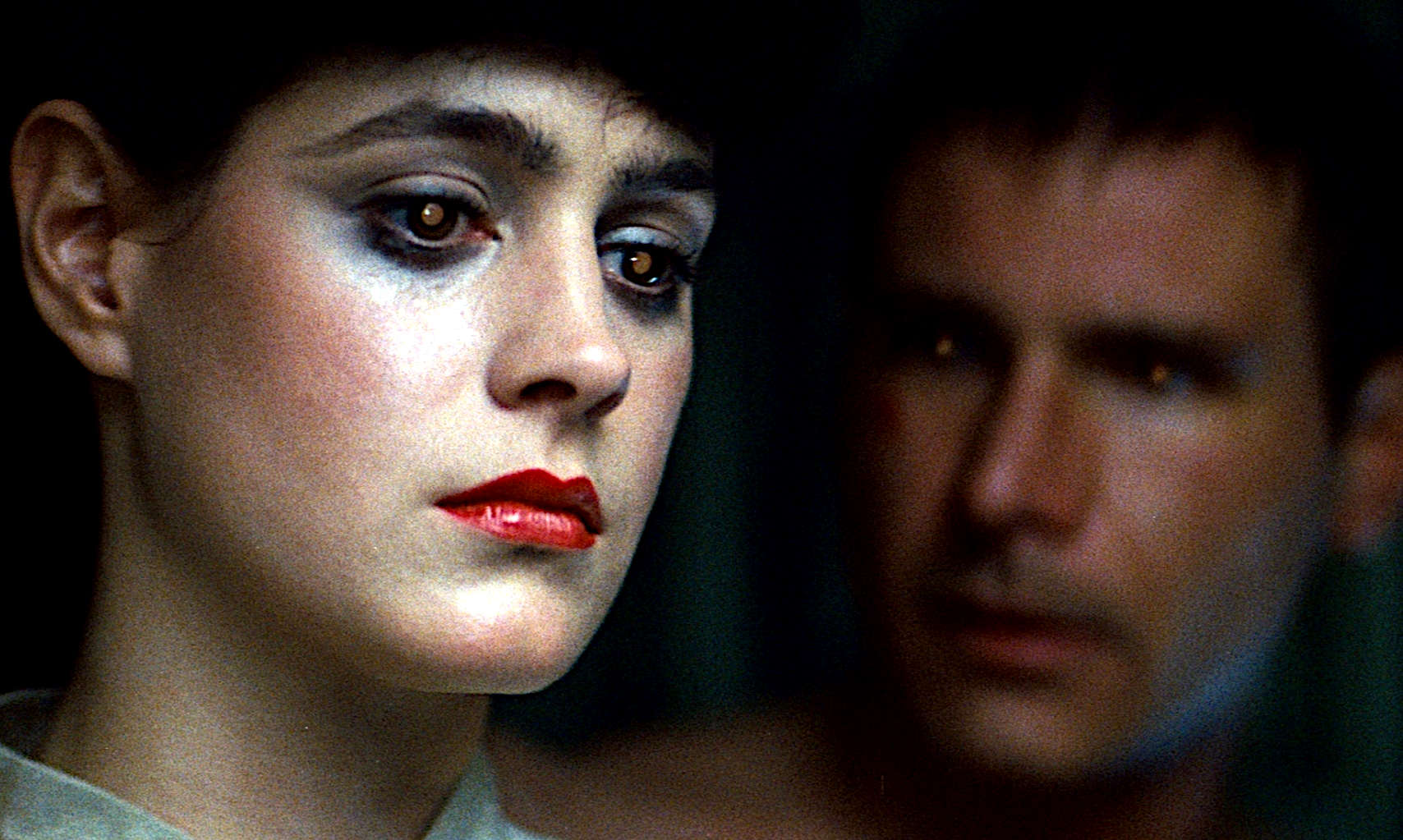|

Rachel
[left] is a replicant who thinks she is human. Rick, is a
replicant hunter, who falls in love with the confused
synthetic.
A 'Replicant' is a
biologically enhanced - synthetic - human, engineered
primarily as slaves and as pleasure models. The concept is
akin to slavery, where one biological organism, owns and
profits from another. The difference being that the
replicated organism, cannot reproduce, and has a shorter
operational life. In addition, other safety factors are
built into the design of a 'Replicant' to make them
subservient, such as to obey their human masters.
Being
so close to humans, they virtually are human, and are prone
to developing emotions, that the fictional Tyrell
Corporation has been so keen to prevent. The development of
emotions involves implanted memories, and real pictures of
their friends.
The
term was coined in the 1982 science fiction film: Blade
Runner.
In his novel Do Androids Dream of Electric Sheep? (the inspiration for Blade Runner), Philip K. Dick used the term android (or "andy"), but director Ridley Scott wanted a new term that the audience would not have any preconceptions about. As David Peoples was re-writing the screenplay, he consulted his daughter, who was involved in microbiology and biochemistry. She suggested the term "replicating", the
biological process of a cell making a copy of
itself. From that, either Peoples or Scott - each would later recall it was the
other - came up with replicant, and it was inserted into Hampton Fancher's screenplay.
A replicant is a fictional bioengineered humanoid featured in the 1982 film Blade Runner, and in its 2017 sequel Blade Runner 2049. The Nexus-series of replicants are virtually identical to adult humans but, depending on the model, some possess superior strength, speed, agility, resilience, and intelligence to varying degrees. A replicant can be detected by means of the fictional Voight-Kampff test, in which emotional responses are provoked and a replicant's nonverbal responses differ from those of a human. A version of the test, referred to as a Baseline, is taken by K in Blade Runner 2049 to detect any mental or empathic damage, for which failure means retirement. Throughout the franchise the euphemism "retire" is used when referring to killing Replicants.
Nexus-6 replicants (e.g. Roy Batty) have a safety mechanism, namely a four-year lifespan, to prevent them from developing empathic abilities (and, therefore, immunity to the test). Nexus-7 replicants (e.g. Rachael) were limited experimental models by Tyrell Corporation with a capability to reproduce. Nexus-8 replicants (e.g. Sapper Morton, Freysa), also by Tyrell Corporation, have an open-ended lifespan; however, a rebellion resulting in the "Blackout of 2022" led them to be discontinued and hunted down for retirement. Nexus-9 replicants (e.g. K), by Wallace Corporation, are also open-ended but have increased compliance which makes them incapable of not following human orders, and are thus full
on slaves. Replicants are sometimes referred to by the slur "skin-job".
It
was found that Replicants cherished memories,
some of which were implanted. Others, they experienced for
themselves. And this was one of their weaknesses, as they
lived, they became more human, developed feelings.
Prior to the events of the film, replicants became illegal on
Earth after a bloody off-world mutiny by a band of Nexus-6 models. Two weeks before the starting point of the film, six Nexus-6 replicants escaped the off-world colonies, killing 23 people and taking a shuttle to Earth; the film focuses on the pursuit of the replicants by Rick Deckard, a category of police-officer bounty-hunter called a "Blade Runner", who investigates, tests, and retires replicants found on Earth.
REFERENCE
https://

Not
quite replicants, but cloning of a pre-existing human - The
Boys From Brazil is a film about Neo-Nazis trying to bring
Adolf Hitler back to life.
|

